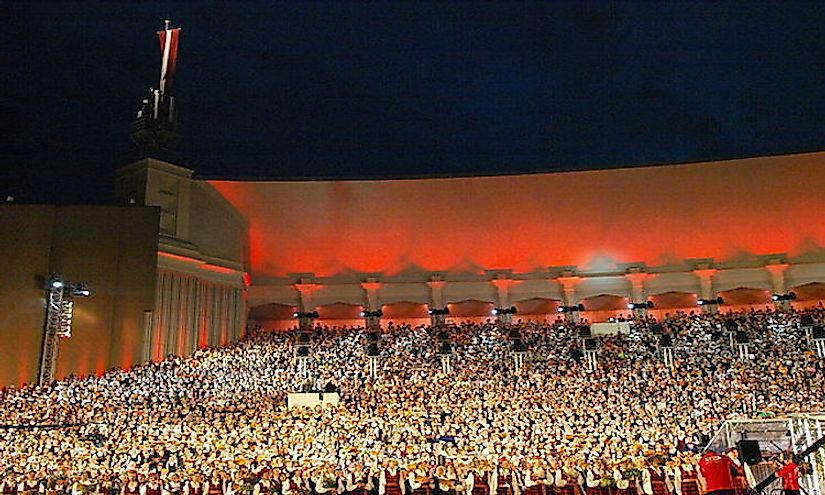The Population Of Latvia

Vital Statistics Of The Population Of Latvia
The Republic of Latvia is one of the three Baltic states of Northern Europe. The country is bordered by Russia to the east, Belarus to the southeast, Lithuania to the south, and Estonia to the north. The population of Latvia is 2,070,371, and it occupies an area of 64,589 square km.
The fertility rate of the population of Latvia is 1.52 children born per woman. This figure is lower than the replacement rate of 2.1. As per 2012 data, 45% of the births in the country were to unmarried women. The life expectancy of the population of Latvia is 73.19 years. It is 78.53 for females and 68.13 for males. The sex ratio in the country is 0.85 males/female, one of the lowest in the world.
Ethnic Origins of the Latvian Population
Though Latvians, the natives of Latvia have always been a majority in the country, over the years the growth of minority groups have been quite overwhelming. Prior to the World War II, about 25% of Latvia’s population was composed of minority groups (approximately: 10% Russians, 5% Jews, 2% to 3% of Poles and Germans). After the World War had ended, a major change in the ethnic composition of the Latvian population occurred. While Jews and Germans exited the country in large numbers, Russians, Belarusians, and Ukrainians immigrated in great numbers. The immigration rates were so high that the native Latvians almost became a minority and by 1989, Latvians formed only 52% of the population of Latvia. However, the proportion of Latvians gradually recovered over the years and was 62.1% as per the 2011 census. The large-scale emigration of the minority groups has led to this status of the population of Latvia.
Religions Of The People Of Latvia
As per a survey conducted in 2005, 24.1% of Latvians claimed to be Russian Orthodox Christians, 20.7% were Catholics, 20.0% adhered to the Lutheran faith, and 4.4% were Old Believers. 10.6% of the Latvian population did not believe in any religious denomination, and 15.8% were classified as non-believers. Though Lutheranism was the most widely practiced religion in the country in the past, the World War II changed the scenario. After the World War, Russian Orthodoxy and Catholicism became more predominant.
Languages Spoken By The Population Of Latvia
As per the 2011 census, 62.1% of the population of Latvia speaks the Latvian language at home which is also the official language of the country. Russian is the second major languages spoken in homes in Latvia. 37.2% of the population of the country speak this language (2011). Russian was the second language of 43.7%, and Latvian was the second language of 20.8% of the Latvian population. As per the 2000 census, 71% of the ethnic Latvians in the country claimed they could converse in Russian while 52% of the Russians of Latvia claimed to speak the Latvian languages.
Other languages in Latvia spoken by at least 500 speakers include Ukrainian, Polish, Tatar, German, Hebrew, Lithuanian, Yiddish, Estonian, Romani.
The Latvian and the Russian Sing Languages are the two types of sign languages recognized in the country.
Cultures Of The People Of Latvia
Latvians are highly fond of singing and every year the Song Festival is hosted in the country where thousands of singers participate to exhibit their talent. Folk songs of Latvia are extremely popular in the country and are known as the “daina.” Rye, potatoes, and wheat are the staple food of the population of Latvia. Dairy products are also highly favored. Smoked fish is popular in the coastal areas.
The family is valued in Latvia and is the center of the social structure. Families are usually small with one to two children. Parents often provide financial assistance to adult children if needed and children are expected to attend to the needs of their elderly parents. In Latvia, age and experience are considered to be assets and people and helps gain respect. Latvians are also private people and are formal and reserved in their dealings with outsiders.







